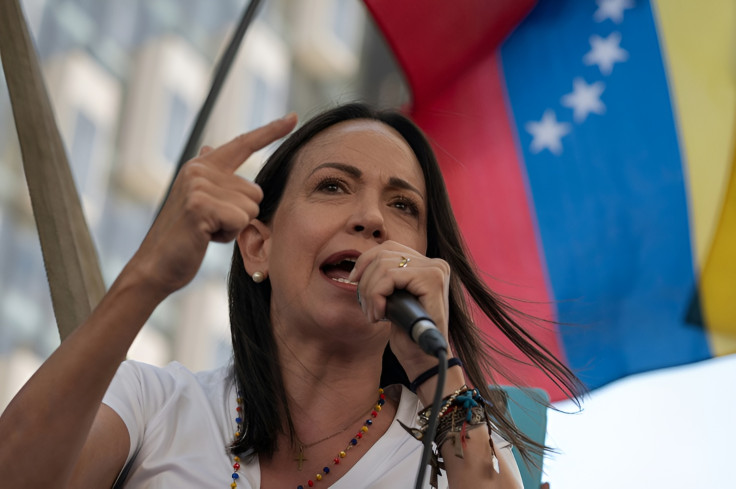
María Corina Machado, one of Venezuela's top opposition leaders, demanded the Maduro government engage in negotiations aimed at an orderly transition should they be defeated in the upcoming presidential elections, a scenario that polls are currently predicting.
Machado said the president does not have the trust of the Venezuelan people and is resorting to fear and repression to have them fall in line. However, she added, this won't deter voters from rejecting Maduro at the polls and remove Chavismo from power after more than 20 years.
"We're heading toward a delicate transition process and, for Mr. Maduro's own sake, as well as the rest of his structure, I hope he accepts a negotiation process," Machado said during a campaign rally along the opposition's presidential candidate, Edmundo González Urrutia.
"We're going to clean up," added Machado, who has been campaigning alongside González Urrutia after being prevented by the government-friendly Electoral Council from running despite winning a broad primary election last year.
However, observers have warned about the different ways in which the Maduro government could seek to stay in power despite losing. An analysis piece by The New York Times includes disqualifying González or the parties he represents, manipulating the election process to suppress voter participation, or even canceling or postponing the election by citing a fabricated crisis, such as a border dispute with Guyana.
Maduro has publicly dismissed the possibility of losing, accusing his opponents of plotting a coup and asserting his confidence in a decisive victory.
There is also the possibility of outright vote tampering, a strategy previously used in the 2017 election where the results were manipulated, according to the company that provided the voting technology.
In fact, a new report claims that the vast majority of all polling centers in Venezuela will be at some sort of manipulation risk during the July elections, as the Maduro government is expected to use the state's muscle to tilt the scale in its favor.
Concretely, a report by sociologist Héctor Briceño and reported by Infobae says that 86% of all such centers (that is over 12,000 of them), which are set to serve 18 million voters, are at risk."
Other efforts to undermine the upcoming vote are already evident. Venezuelans living abroad, who are likely to vote against Maduro, face significant obstacles in registering to vote. Only a small fraction of the eligible expatriate population has been able to register, something that watchdog groups have described as a form of electoral fraud.
Within Venezuela, the government has complicated voting logistics by renaming thousands of schools, potentially confusing voters. Furthermore, the ballot is cluttered with numerous candidates, including parties with names and symbols similar to the main opposition coalition.
© 2024 Latin Times. All rights reserved. Do not reproduce without permission.







